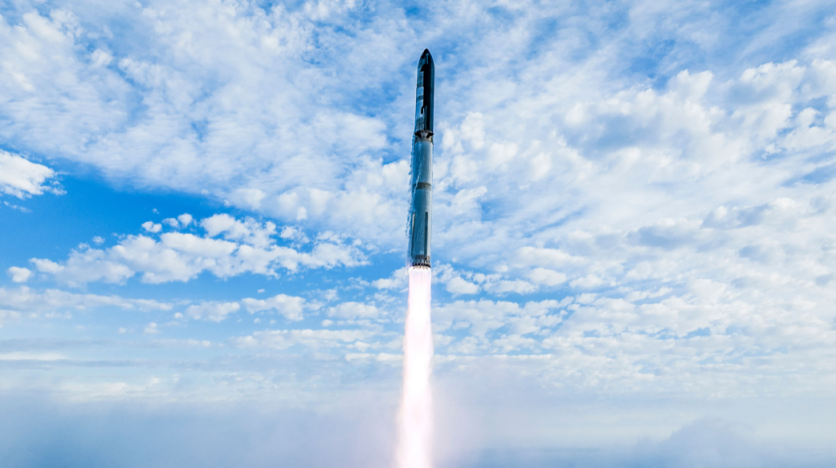
The recent Starship Flight 9 mission came and ended, but despite the many new things tried on this test, the outcome still turned out to be the same as previous missions. This is the third straight in a row that SpaceX lost its Ship after detaching from the Super Heavy Booster, with this mission also seeing the loss of the first stage rocket after successfully landing previous ones.
In this latest mission, SpaceX did something bolder and new with the second stage Ship as the company climbed higher than previous ships before them and was able to do it successfully.
SpaceX Starship Flight 9 Ended In 3rd Straight Loss
SpaceX launched the Starship Flight 9 on the eve of May 27 with the hopes of being successful with their testing as the two previous missions ended with explosions, but it was the same outcome for the company.
The Flight 9's mishaps now bring SpaceX its third straight failure in testing the Starship program as the company saw both of its rockets disintegrate into bits and pieces.
First, SpaceX reused a Super Heavy Booster rocket that it took from the seventh test flight of the program, which is best known for being the first stage that flew last January, but after detaching from the ship and starting its landing burn, it exploded.
The Ship or the upper stage went on to fire all six Raptor engines for a full-duration ascent burn, with the rocket reaching a higher point in orbit, going for a coast and its first payload deployment. However, as it prepared for re-entry, the Ship was lost too.
Read Also: SpaceX Starship Is Gearing Up to Launch Every Other Week From Starbase Following FAA Approval
Will SpaceX Continue Starship Test Flights?
Starship made it to the scheduled ship engine cutoff, so big improvement over last flight! Also, no significant loss of heat shield tiles during ascent.
— Elon Musk (@elonmusk) May 28, 2025
Leaks caused loss of main tank pressure during the coast and re-entry phase. Lot of good data to review.
Launch cadence for…
All in all, SpaceX still considers this test a success as both rockets accomplished something new and the Super Heavy was reused for the first time. The Ship likewise flew higher and delivered a payload.
SpaceX CEO Elon Musk shared in a post on X that while there were mishaps, the Starship program will see a faster launch cadence for its next three flights, flying a mission at approximately 3 to 4 weeks.
Outcomes of 2025's Starship Flights
SpaceX saw a successful Starship testing in the latter parts of 2024, and the company ended the year on a high note with a significant Flight 6. As 2025 came rolling in, SpaceX was eager to continue its success with Flight 7, but it did not turn out as planned as it first saw a delay, and its test also saw an unprecedented explosion for the Ship.
With this, the company had to gather itself and fix everything that went wrong with the Starship mission and was eager to proceed with Flight 8, also coming alongside their new launch cadence plans for more frequent missions.
However, Flight 8 is also known for doubling back on the explosions faced by the Starship rocket, but the silver lining is that the company caught the Super Heavy twice in a row.
Flight 9 recently saw approval from the FAA, which gave them the license they needed for the mission, and the company did not waste any time to hold its launch the following week.
ⓒ 2026 TECHTIMES.com All rights reserved. Do not reproduce without permission.




